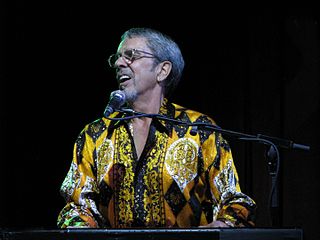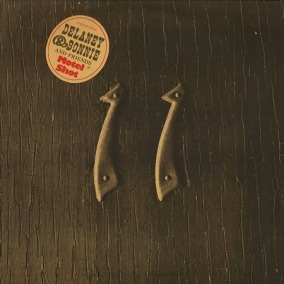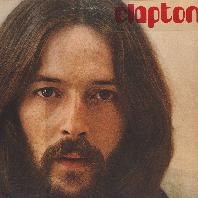Ghetto refers to a portion of a municipality in which a particular ethnic or racial group lives, often in poor conditions.
Contents
Ghetto or The Ghetto may also refer to:
Ghetto refers to a portion of a municipality in which a particular ethnic or racial group lives, often in poor conditions.
Ghetto or The Ghetto may also refer to:
Method literally means a pursuit of knowledge, investigation, mode of prosecuting such inquiry, or system. In recent centuries it more often means a prescribed process for completing a task. It may refer to:
Proof most often refers to:
Trouble may refer to:

Derek and the Dominos was a short-lived English–American blues rock band formed in the spring of 1970 by guitarist and singer Eric Clapton, keyboardist and singer Bobby Whitlock, bassist Carl Radle and drummer Jim Gordon. All four members had previously played together in Delaney & Bonnie and Friends, during and after Clapton's brief tenure with Blind Faith. Dave Mason supplied additional lead guitar on early studio sessions and played at their first live gig. Another participant at their first session as a band was George Harrison, the recording for whose album All Things Must Pass marked the formation of Derek and the Dominos.
Fundamental may refer to:
Rhapsody may refer to:
Streets is the plural of street, a type of road.
Worldwide may refer to:

Bonnie Bramlett is an American singer and occasional actress known for performing with her husband, Delaney Bramlett, as Delaney & Bonnie. She continues to sing as a solo artist.
Archangels are the highest rank of angel.

Robert Stanley Whitlock is an American singer, songwriter and musician. He is best known as a member of the blues-rock band Derek and the Dominos, with Eric Clapton, in 1970–71. Whitlock's musical career began with Memphis soul acts such as Sam & Dave and Booker T. & the M.G.'s before he joined Delaney & Bonnie and Friends in 1968. His association with Delaney & Bonnie bandmate Clapton led to Whitlock's participation in sessions for George Harrison's 1970 triple album All Things Must Pass, in London, and the formation of Derek and the Dominos that year. On the band's sole studio album, the critically acclaimed Layla and Other Assorted Love Songs, Whitlock wrote or co-wrote seven of the album's fourteen tracks, including "Tell the Truth", "Bell Bottom Blues" and "Why Does Love Got to Be So Sad?"

Delaney & Bonnie were an American duo of singer-songwriters Delaney Bramlett and Bonnie Bramlett. In 1969 and 1970, they fronted a rock/soul ensemble, Delaney & Bonnie and Friends, whose members at different times included Duane Allman, Gregg Allman, Eric Clapton, George Harrison, Leon Russell, Bobby Whitlock, Dave Mason, Steve Howe, Rita Coolidge, and King Curtis.

Motel Shot is a studio album by Delaney & Bonnie and Friends, released in 1971. The album, their third for Atco/Atlantic and fifth overall, is a mostly acoustic set. The album's title refers to the impromptu, sometimes late-night, jam sessions pursued by touring musicians when on the road.

The Original Delaney & Bonnie, also known by its subtitle Accept No Substitute, is the second studio album by American recording duo Delaney & Bonnie. It was recorded with many of the "friends" that would form the core of their best-known 1969–70 touring band, including Bobby Whitlock, Carl Radle and Rita Coolidge.

The Best of Delaney & Bonnie is a compilation album of music recorded by Delaney & Bonnie and Friends during the years 1969-71.

Delaine Alvin "Delaney" Bramlett was an American singer and guitarist. He was best known for his musical partnership with his wife Bonnie Bramlett in the band Delaney & Bonnie and Friends, which included a wide variety of other musicians, many of whom were successful in other contexts.
Bonnie and Clyde refers to the American outlaw couple Bonnie Parker and Clyde Barrow.

Clapton is a 1973 compilation album of Eric Clapton's early solo work. It was the second of two such compilations that Polydor Records would issue; the first, Eric Clapton at His Best, was released in late 1972.

Bonnie and Clyde is a 2003 collaboration album by Messy Marv and Marvaless.
Groupie usually refers to a kind of fan assumed to be more interested in relationships with rockstars than in their music.